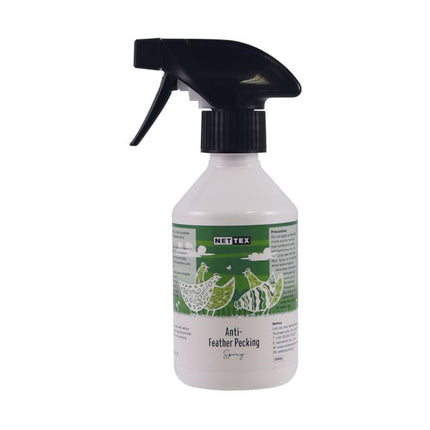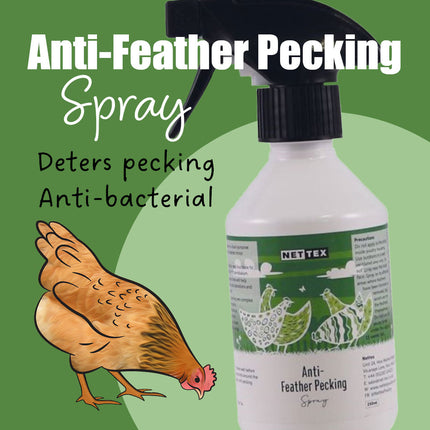Anti-Feather Pecking Spray 250ml | Nettex
Anti-Feather Pecking Spray 250ml | Nettex
Anti-feather pecking spray for poultry. Nettex Anti-Feather Pecking Spray is a dual-purpose spray to help prevent pecking among chickens and... Read more
$37.95 Incl. GST
- Yes, we offer combined shipping
- We ship (courier) same day or next working day


